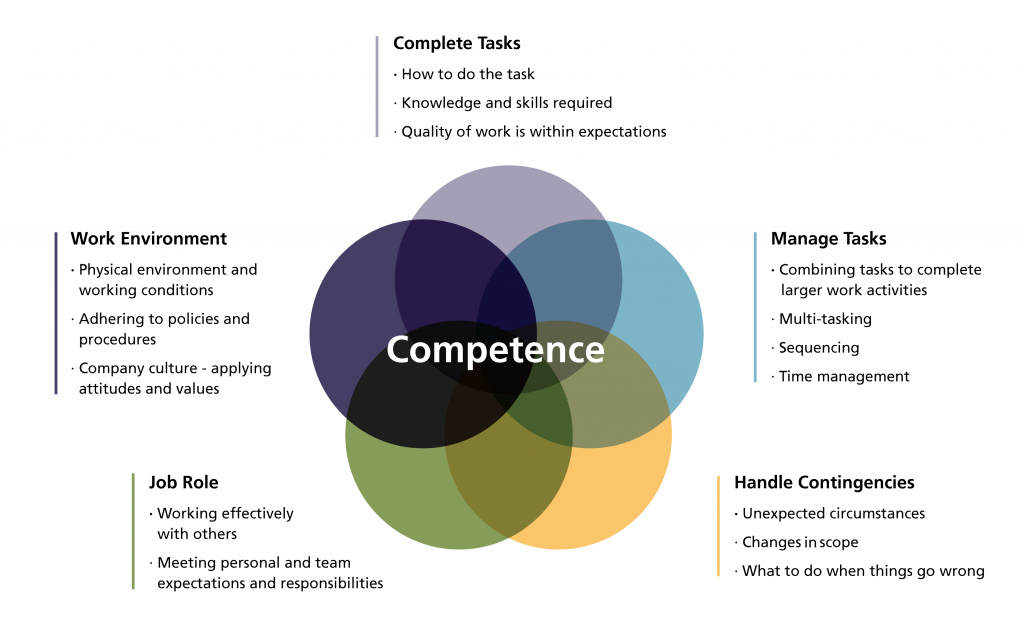1 What do we mean by competence?
Defining competence is no easy task. There is wide variation regarding the use of the term and oftentimes this causes confusion when trying to develop a competency framework. Given the lack of shared understanding, it is necessary to define it for use in this toolkit. According to the Oxford English Dictionary , Competence (noun) “is the ability to perform to a specified standard.”[1] Competence involves successful performance in the world of work and learning. Effective performance requires both the skills to function effectively and the knowledge and attributes (attitudes and values) to apply those skills in routine and non-routine situations.
The term ‘competent’ (adjective) is used to describe individuals or groups (such as a competent person or a competent organization) and can be used in both broad and narrow contexts.
Being competent means being able to perform a task or an activity consistently over time and in different situations. To determine consistent performance it’s important to consider the following: [2]:
- Completing tasks and activities-
- Being able to apply specific knowledge and skills to complete work or school tasks and activities
- Understanding why an activity or task should be done that way
- Managing tasks –
- Being able to handle multiple tasks and activities and still get things done on time
- Knowing how to do a job, task, or activity and being able to do the things required to meet expectations of work quality
- Handling contingencies –
- Unexpected circumstances
- Changes in scope
- What to do when things go wrong
- Working within a role –
- Working with others as a part of a team, often with defined expectations and responsibilities
- Doing a job safely and following policies and procedures
- Working within the work or school environment –
- Doing tasks and activities within the physical environment and working conditions
- “Fitting in or contributing to” the organization’s culture and values
- Being able to adapt to similar but different situations related to the work

These situational factors are important when developing competency frameworks. It’s also important to note that competence changes over time; for example, if a situation changes the level of competence required to perform to the agreed standard may change. Competence is fluid in nature and should be considered at all stages of competency framework development.
The ability to do something successfully or efficiently
The world of work and learning encompasses activities and expectations that are found in both the workforce and higher education, as well as those that may be done on a volunteer basis but include clear roles, responsibilities, and performance expectations.
A specific activity that has a start and an end. Multiple tasks may be required to complete broader work activities, and tasks may in turn have smaller sub-tasks or steps that are required to complete them.
Something that an individual or team undertakes effort to complete. Activities may be broad and ongoing, or may require a number of specific tasks, each of which may have its own beginning and end.

